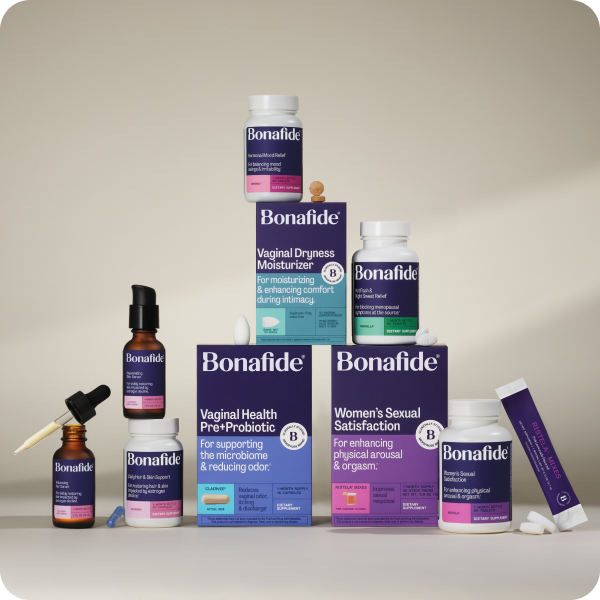The "self-care" hashtag has been trending on social media for quite some time, appearing on photos of everything from bubble baths to bottles of wine and face masks to fuzzy slippers. The diversity proves that self-care means different things to different people and one size does not fit all. What works for someone else’s physical, emotional, or mental well-being may not work for you, especially during your menopausal years.
While there are some universal truths surrounding the physical aspects of menopause, such as your estrogen declining significantly and the definitive end of your monthly menses, there are plenty of other menopausal symptoms that are as varied as the women who experience them. From hot flashes to mood swings to exhaustion from loss of sleep, menopause symptoms can quickly take over your life if you aren’t taking the time to take care of yourself.
Rest and Recharge
When entrepreneur Marla R., started noticing what she describes as “shifts in her mood,” and “brain fog,” the 48-year-old mother of two consulted her OBGYN who determined that she was in peri-menopause. In addition to staying on birth control to try and keep her hormones in balance until her periods ceased, Marla also began to evaluate how she was “tuning in” to her body’s needs.
“When my internal operating system says that it’s malfunctioning, I allow myself to stop, breathe, and reassess," explains Marla. "If I find that it is on overload, I don't give it more tasks. Instead, I've started giving myself permission to honor what my body or mind needs, whether that's soaking in a hot bath with Epsom salts or getting busy with a creative project I enjoy."
For 51-year-old Beverly I., part of her menopause self-care routine includes hormone replacement therapy to manage symptoms like hot flashes, as well as a vitamin D supplement purchased from her local pharmacy, which she takes to help boost her immunity and support her bone and muscle health. For Beverly, allowing herself to lean into other symptoms, including fatigue, has helped.
“I absolutely nap when I need to,” she says.
Movement and Meditation
Rest and relaxation may be the answer for some women, but others rely on movement and activity to manage menopausal symptoms. Fifty-five-year-old Lisa L. chose not to use hormone replacement therapy for her symptoms and instead, turned to exercise and meditation.
"Working out helps me feel good all over, and daily meditation keeps me from wanting to kill anyone," she laughs. "But seriously, both put me in a good space physically and mentally. For me, self-care is doing what I can in the best way that I know how, and that should be enough."
Staying Healthy and Happy
While honoring your body and finding ways to navigate your own personal symptoms is important, self-care also includes medical care. Getting regular mammograms, gynecological checkups, and even finding a good therapist to talk to are all important things to consider when it comes to handling the physical and emotional changes you are experiencing during peri-menopause or menopause.
Though it may be tempting to curl up with a bottle of wine and box of chocolates in the name of “self-care,” you’d be much better served by nourishing your body with a clean, healthy diet, rich in vegetables, fruits, proteins, and healthy fats like avocados and nut butters. Dr. Alyssa Dweck, MS, MD, FACOG, recommends following the Mediterranean diet, which is sometimes favored for supporting heart health and immunity, and is also naturally high in antioxidants. “I recommend the Mediterranean diet for menopausal women. This diet is not only cardio-protective but may also enhance immune function and optimize general health and well-being, as well as energy.”
Remember to communicate with your spouse or partner about what you are going through and don’t be afraid to ask them for help when you need a little extra “me” time. Find a strong support group of female friends who can remind you that you are not alone and that this, too, shall pass.
“My focus is on riding this out the best way I can,” says Marla. “It helps me to know that we are all in this together.”








Comments
Post commentI’ve gone through menopause many years ago, but still have symptoms. Just relax & take it easy is the way to go.